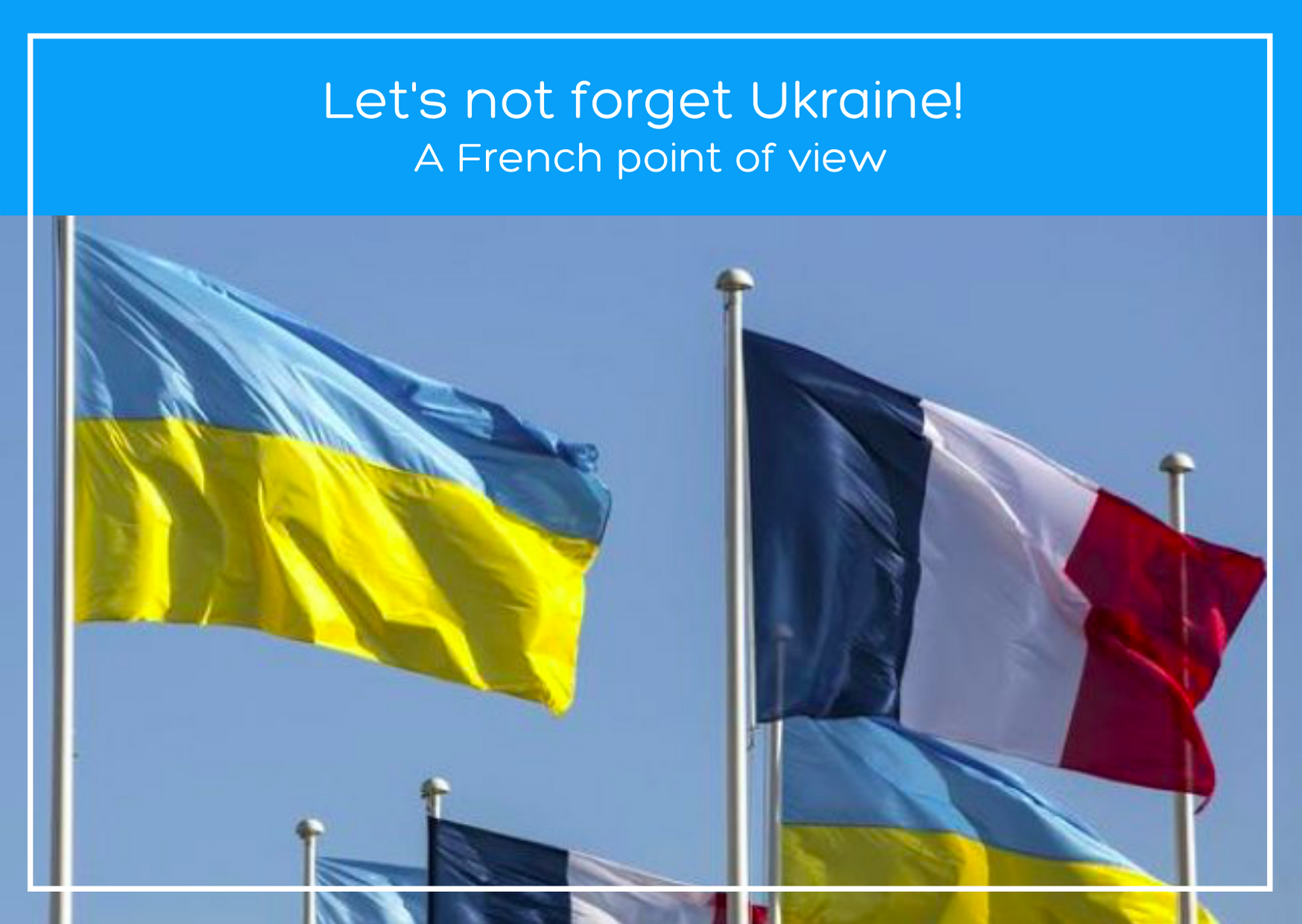Op-ed by Romain Lequiniou, a French independent analyst in European Affairs and the co-Founder and Managing Director of independent and non-profit think-tank Euro Créative. Based in Paris since 2019, Euro Créative is a first French think tank focused on Central and Eastern European developments.
On April 30th, a Normandy Format meeting was held virtually between French, German, Russian and Ukrainian Foreign Ministers. A meeting which did not lead to any progress. The French MFA only published – as usual formality – a laconic communiqué recalling the need to achieve the objectives set in Paris in December 2019[1]. By committing himself to the Normandy Format, President Macron hopes to achieve a noticeable diplomatic victory. The diplomatic impasse in which the four players find themselves can therefore be frustrating, but it should not be discouraging. Above all, Ukraine should not be forgotten in France!
Why should France not forget Ukraine? Firstly, providing constant diplomatic support to Ukraine is a strategic necessity for stable European security environment not allowing armed power relations. Ukraine is victim of a military aggression and this reality – located only three hours by plane from Paris – should not be accepted. As a facilitator and a mediator in these diplomatic negotiations France has to favour a limitation of human losses and the implementation of a peaceful solution. At the same time, it must be avoided at all costs that Donbas becomes yet another frozen conflict on the periphery of the EU.
Secondly, if France must not forget Ukraine, it is also for its own interests. In the short term, the objective is a diplomatic victory to be asserted on the national level – presidential elections are due in 2022. In the longer term, the objective is the lasting appeasement of the European security environment. As such, Russia is in the eyes of the French President – and part of his entourage – the indispensable link in the rebuilding of the European security architecture[2]. The idea is that if tensions on the continent decrease, it will be easier to develop the European strategic autonomy (i.e. capacity for autonomous military action which would not duplicate NATO) desired by France. France, in particular, initiated the European Intervention Initiative – a joint military project of 14 European sates out of NATO and the EU. This is a dangerous game but without specific interests, France would not be involved.
Now that the main reasons for keeping Ukraine at the centre of France’s diplomatic attention have been set out, it is time to identify its modalities. First, dialogue between all actors has to be maintained. As such, the Normandy Format – as a complement to the Trilateral Contact Group – remains necessary. However, the evolution of its format and its objectives must be considered as well as the question of the validity of the Minsk II Agreements must inevitably be raised. In the same time, the legitimacy of the Normandy Format must be reinforced with France and Germany being not only de facto leaders but true representatives of European interests.
More generally, the Europeanization of this diplomatic process will be the sine qua non condition for the establishment of a more stable European security system. As such, Germany and France – both criticised for their positions towards Russia – should reinforce dialogue on this topic with their European partners and in particular with countries considered by Ukraine as its closest supporters such as Lithuania or Poland. Hence, Emmanuel Macron should be aware that a short term and individualistic diplomatic victory – as tempting as it might be – would be dramatically counter-productive. A strategy of putting pressure on Ukraine to accept a flawed agreement would only lead to a dramatic political crisis in Ukraine and increased nervousness among its Central and Eastern European partners.
Second, the sanctions regime against Russia must be maintained. Once again, the EU’s international credibility and its ability to defend a stable security system regulated by international law and diplomacy are at stake. In view of the upcoming economic situation, some countries will call for a termination of these economic sanctions towards Russia. In France, several voices will also support this prospect. However, as long as the conditions are not met, this is not conceivable. Additionally, sanctions could become a much more interesting diplomatic tool in the coming months. Indeed, the economic crisis – coupled with the dramatic fall of oil prices – could have particularly disastrous consequences for the Russian economy. In such context, Russia might be tempted to come to the negotiating table and try to find a convenient way out. However, such outcome will be only possible in the case of a strong and clear European unity on the continuation of sanctions!
Third, France and Europeans must continue to provide assistance to Ukraine. A financial assistance first, especially when Ukraine is on the verge of bankruptcy. In this sense, the macro-financial assistance programme announced by the European Commission is a positive sign. A structural assistance then, in order to encourage its rapprochement with the EU. In particular, France must therefore continue and amplify its action in this area. Cooperation on decentralization is a convincing example which has to be replicated. This accompaniment is particularly important at a time when President Zelenskiy seems increasingly weakened politically.
Finally, France must raise its understanding about Ukraine. Of course, Ukraine is facing many challenges currently, and the road to European integration looks more than sinuous. But Ukraine is also full of many opportunities and engineered by a rare societal dynamism. It has to be emphasised more often at political, economic and societal levels in France. In this view, the online release of a film narrating the diplomatic action of the former French Ambassador to Ukraine – Madame Isabelle Dumont (2015-2019) – is a small but encouraging idea[3].
French media have a great responsibility in this field. Indeed, clichés surrounding Ukraine – which even exist at the highest political level – must be reduced in order to deal with current developments. French think-tanks – totally absent from the country as of today – could also bring positive added value, helping French and Ukrainian civil societies to increase their relations. Support for the development of francophonie in Ukraine could be one aspect of it.
In Ukraine, there will be no easy or quick peace. The resolution of this conflict will necessarily have to be part of a long-term strategic thinking in which France has a major diplomatic role to play. Its ability – and the one of its European partners – to resolve this war will reflect EU’s ability to assume a geopolitical role in line with the global challenges of the XXI century. Indeed, part of the European future is currently being played out in Donbas. So once again, France should not forget Ukraine!
[1] https://www.diplomatie.gouv.fr/fr/dossiers-pays/ukraine/evenements/article/communique-de-m-jean-yves-le-drian-reunion-en-visioconference-des-ministres-des
[2] https://www.elysee.fr/emmanuel-macron/2019/08/27/discours-du-president-de-la-republique-a-la-conference-des-ambassadeurs-1
[3] https://www.youtube.com/watch?v=V89O_afNdLI








